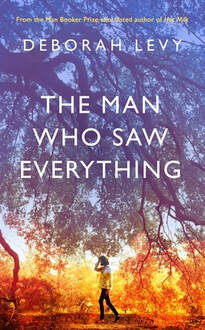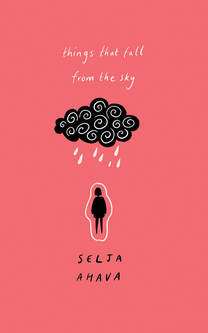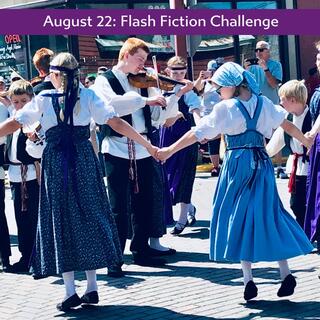The Man Who Saw Everything by Deborah Levy
We follow him there where he’s officially studying the wonders of the communist system, and unofficially pondering the psychology of male tyrants, an interest perhaps influenced by his difficult relationship with his own authoritarian father, an advocate of the GDR, some of whose ashes he plans to bury in communist soil. Alongside his academic work, he falls in love with Walter, his translator, and also has sex with his troubled sister Luna, short for lunatic.
But all is not as it seems. Saul seems to have insight into the future, including the knowledge that the wall between East and West is about to collapse. On the other hand, he seems careless and easily muddled, and cries a lot for a man of twenty-eight.
This first section, comprising half of the book, is rich in detail and thin on plot. The reason becomes clear midway but, despite having loved the author’s last novel, Man-Booker-prize-shortlisted Hot Milk, I was tempted to give up. But the reveal, and subsequent development, cancelled out the earlier frustrations. Even so, I admired the novel more for its cleverness and didn’t feel an emotional connection to the material until late on.
Overall, I’m glad to have read this intelligent novel about time slips, surveillance, connections, carelessness and its consequences, although I doubt I’ve read it closely enough to pick up all the nuances and symbols. What I liked best about it isn’t mentioned in to the blurb, so SPOILER ALERT skip the rest of this review if you don’t want to know. It turns out that Saul’s accident on Abbey Road happened more recently, and the novel maps his morphine-induced journeys from his hospital bed. There’s a story about a man in a similar predicament in my short story collection, Becoming Someone, on the theme of identity, which was published in November 2018.
Things That Fall from the Sky by Selja Ahava translated by Emily Jeremiah and Fleur Jeremiah
Human beings are meaning makers, so random events and coincidences, even the good ones, can be hard to take. But time moves on, even if, as young Saara tells the doctor who repairs her dislocated shoulder, “sometimes, pieces come loose and they don’t move with time but instead stay here, always” (p85). A wise child, but I found her far too knowing for her years in other places, too able to intuit another point of view.
Although there are other narrators, we spend the first hundred pages in Saara’s company, which I didn’t particularly enjoy. When the wonderful Krista takes over almost another fifty pages further on, it was almost too late to redeem the novel for me. I didn’t hate it by any means, but an irritating young child narrator combined with a meaning-of-life message made me glad to reach the end. But others must have loved it as it won the EU Prize for Literature and was shortlisted for the Finlandia Prize. Thanks to UK publishers Oneworld for my review copy.
| Despite there being little charm in the old world of the Communist bloc, and the charm of Things That Fall from the Sky’s six-year-old narrator eluding me, this is where I’m placing this week’s 99-word story. I raised my head from my books to seek out the old-world charm of the Derbyshire custom of well dressing. Alas, with the climate emergency, along with the persistence of belief in the supernatural, the tradition might once again become more than an excuse for a shindig. |
Our forefathers took time and trouble to appease the elements. Didn’t they rely on sun and rain for their daily bread? In summer they’d decorate the springs with gleanings from nature’s pantry, and thank the Lord for that cool clear liquid that enabled the crops to grow. In our pick-and-mix culture, we shed their superstitions but kept their art: village competing with village for the best display. For five long days we’d diligently press petals, seeds and berries into a clay-covered board until the design took shape. Now our great-grandchildren fight wars for water. The village wells are dry.


























 RSS Feed
RSS Feed





















